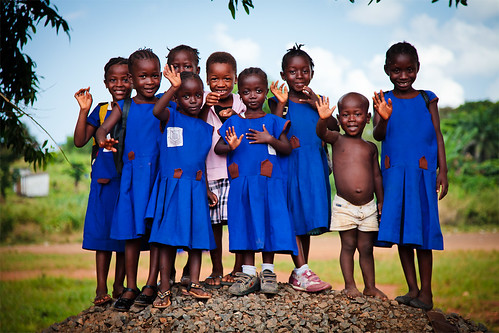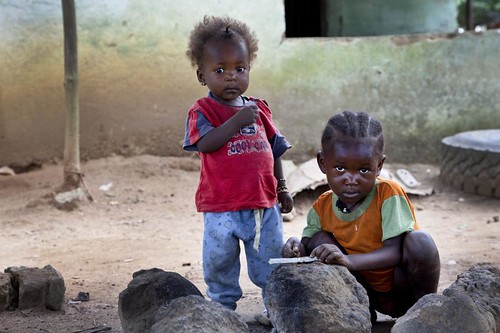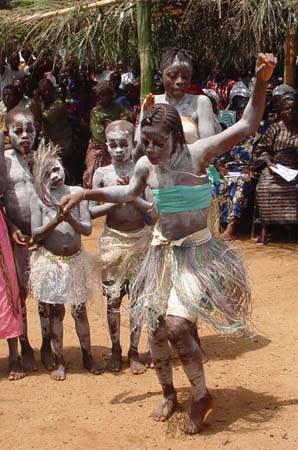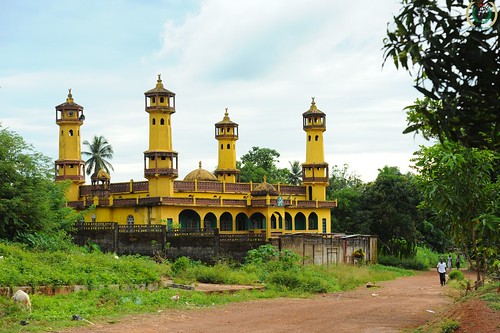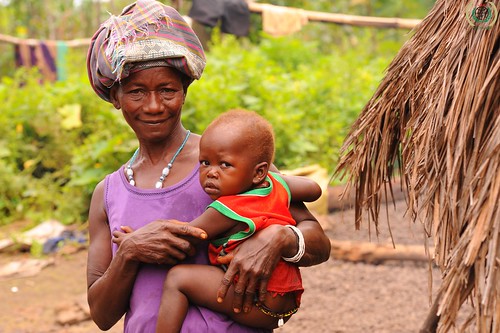Difference between revisions of "Adopting from Sierra Leone"
(→Who Can Adopt) |
(→Who Can Adopt) |
||
| Line 58: | Line 58: | ||
In addition to these U.S. requirements for prospective [[Adoptive Parents|adoptive parents]], Sierra Leone also has the following eligibility requirements for prospective [[Adoptive Parents|adoptive parents]]: | In addition to these U.S. requirements for prospective [[Adoptive Parents|adoptive parents]], Sierra Leone also has the following eligibility requirements for prospective [[Adoptive Parents|adoptive parents]]: | ||
| − | |||
| − | |||
==Residency== | ==Residency== | ||
Revision as of 23:38, 8 April 2014
Contents
Sierra Leone Adoption Alert
Alert: Suspension of Adoptions Lifted in Sierra Leone (April 30, 2012)
On April 13, 2012, the Government of Sierra Leone's Ministry of Social Welfare, Gender and Children's Affairs lifted the suspension on intercountry adoptions that it enacted on May 21, 2009. Official information states at this time that any new intercountry adoptions will take place under the country’s existing legal framework outlined in the country information sheet for Sierra Leone on adoption.state.gov. An interagency committee established by the Ministry continues to work on new adoption laws and procedure and the situation remains fluid. We strongly encourage prospective adoptive parents to read all information regarding intercountry adoption procedures for Sierra Leone prior to beginning the process of intercountry adoption.
Please continue to monitor adoption.state.gov for updated information.
Alert: Suspension of Adoptions in Sierra Leone (September 17, 2009)
The Government of Sierra Leone's Ministry of Social Welfare, Gender and Children's Affairs suspended adoptions on May 21, 2009 due to concerns on the legality of adoptions and the welfare of adoptees. An interagency committee has been established by the Ministry to work on new adoption laws and procedures. The U.S. Embassy has been informed that the committee hopes to present a new bill to Parliament for a vote this calendar year. The Ministry has indicated that no adoption cases will be processed or approved while the suspension remains in effect. Adoption cases approved before the suspension remain valid.
Please continue to monitor adoption.state.gov for updated information.
Hague Convention Information
Sierra Leone is not party to the Hague Convention on Protection of Children and Co-operation in Respect of Intercountry Adoption (Hague Adoption Convention). Therefore, when the Hague Adoption Convention entered into force for the United States on April 1, 2008, intercountry adoption processing for Sierra Leone did not change.
Who Can Adopt
To bring an adopted child to United States from Sierra Leone, you must be found eligible to be an adoptive parent by the U.S. Government. The U.S. Government agency responsible for making this determination is the Department of Homeland Security, U.S. Citizenship and Immigration Services (USCIS). Read more on Who Can Adopt.
In addition to these U.S. requirements for prospective adoptive parents, Sierra Leone also has the following eligibility requirements for prospective adoptive parents:
Residency
Under Sierra Leonean law, adoptive parents are currently required to be resident in Sierra Leone for six months and to attend the court hearing for the adoption. Although in the past the High Court of Sierra Leone would sometimes waive either the personal appearance of prospective adoptive parents at adoption proceedings or the six-month residency requirement, this was always at the Court's discretion and should not be considered the norm. The High Court is currently reviewing its application of the Adoption Act and practices may change without notice.
Age of Adopting Parents
Unless related to the child, one of the adoptive parents must be at least twenty-five years old and twenty-one years older than the child. A relative of the child need only be twenty-one years old. Sierra Leonean law allows adoption by a father or mother (either alone or jointly with a spouse), and has no age requirement at all in this case.
Marriage
A single male may not adopt a child unless there are exceptional circumstances or the child is a son of the prospective adoptive father, Only married couples may adopt jointly.
Income
None.
Other
None.
Who Can Be Adopted
How to Adopt
Adoption Authority
The Process
Traveling Abroad
Applying for Your U.S. Passport
A valid U.S. passport is required to enter and leave Sierra Leone. Only the U.S. Department of State has the authority to grant, issue, or verify U.S. passports. Getting or renewing a passport is easy. The Passport Application Wizard will help you determine which passport form you need, help you to complete the form online, estimate your payment, and generate the form for you to print-all in one place.
Obtaining Your Visa
In addition to a U.S. passport, you also need to obtain a visa. A visa is an official document issued by a foreign country that formally allows you to visit. Where required, visas are attached to your passport and allow you to enter a foreign nation. To find information about obtaining a visa for Sierra Leone, see the Department of State's Country Specific Information.
Staying Safe on Your Trip
Before you travel, it's always a good practice to investigate the local conditions, laws, political landscape, and culture of the country. The State Department is a good place to start. The Department of State provides Country Specific Information for every country of the world about various issues, including the health conditions, crime, unusual currency or entry requirements, and any areas of instability.
Staying in Touch on Your Trip
When traveling during the adoption process, we encourage you to register your trip with the Department of State. Travel registration makes it possible to contact you if necessary. Whether there's a family emergency in the United States, or a crisis in Sierra Leone, registration assists the U.S. Embassy or Consulate in reaching you. Registration is free and can be done online.
After Adoption
What resources are available to assist families after the adoption?
Many adoptive parents find it important to find support after the adoption. Take advantage of all the resources available to your family -- whether it's another adoptive family, a support group, an advocacy organization, or your religious or community services.
Here are some good places to start your support group search:
Child Welfare Information Gateway
North American Council on Adoptable Children
Adoption Services Support Group for Adopting Persons
SOURCE
Intercountry Adoption, Bureau of Consular Affairs. U.S. Department of State Country Information



